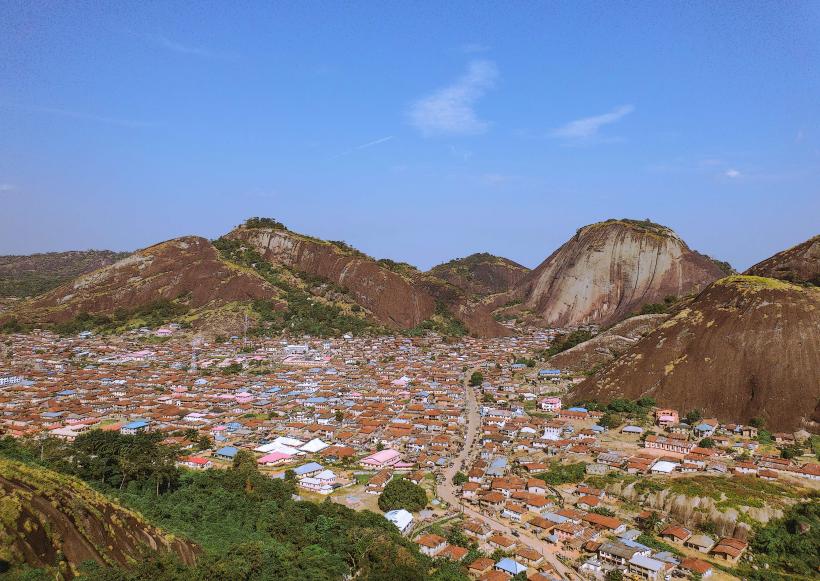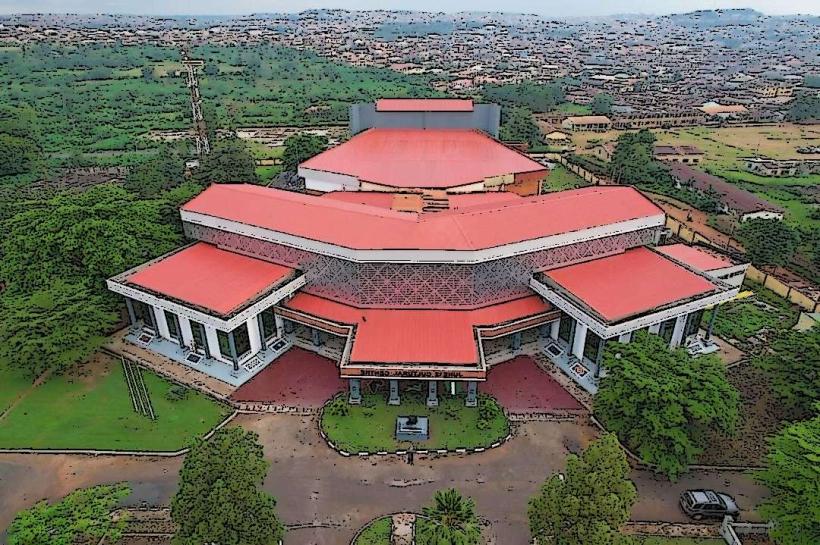Information
City: AbeokutaCountry: Nigeria
Continent: Africa
Abeokuta, Nigeria, Africa
Abeokuta serves as the administrative capital of Ogun State and a historic center of political influence in Yorubaland. It is situated on the east bank of the Ogun River, approximately 75 kilometers north of Lagos, characterized by its granite rocky outcrops and hilly terrain.
Historical Timeline
Abeokuta was founded in 1830 by the Egba people as a refuge from the inter-tribal wars following the collapse of the Old Oyo Empire. The city transitioned through the Egba United Government (1893–1914), British colonial rule, and became the state capital upon the creation of Ogun State in 1976. The primary event shaping its current urban form was the construction of the Olusegun Obasanjo Presidential Library and the modernization of the Oke-Mosan administrative axis in the early 21st century.
Demographics & Population
The metropolitan population is approximately 600,000 as of 2026. The population is predominantly Egba (Yoruba), with significant minorities from other Yoruba subgroups and northern Nigerian traders. The median age is 19.4 years.
Urban Layout & Key Districts
The city is organized around the massive Olumo Rock and the Ake Palace. Key districts include Oke-Mosan (South), the modern administrative hub containing government secretariats; Panseke (West), the primary commercial and transport node; and Ake (Central), the historic and royal core. The city's growth is constrained by its rugged topography, leading to a sprawling, non-linear layout.
Top City Landmarks
Olumo Rock
Olusegun Obasanjo Presidential Library (OOPL)
Alake of Egbaland Palace
Centenary Hall
Itoku Market (Adire textile hub)
Transportation Network
Internal movement is dominated by green-and-white painted taxis and "Keke" (tricycles). The Lagos-Ibadan Standard Gauge Railway serves the city via the Professor Wole Soyinka Station at Laderin. Ride-sharing is available via Bolt. Traffic density is highest at the Panseke and Kuto intersections, particularly during market days and morning commutes.
Safety & "Red Zones"
The general safety level is high compared to other regional capitals. However, caution is advised in the Sapon and Itoku market areas at night due to petty theft. Travelers should avoid poorly lit sections of the old city walls after dark.
Digital & Financial Infrastructure
Average internet speeds are 30–50 Mbps on 4G/5G networks. Main carriers are MTN, Airtel, and Glo. Card acceptance is standard in hotels, the OOPL complex, and modern malls, but cash is essential for traditional market transactions. ATMs are concentrated in the Panseke, Kuto, and Oke-Mosan districts.
Climate & Air Quality
Temperatures range from 22°C to 34°C. The city experiences a tropical savanna climate with high humidity and a rainy season from April to October. Air quality is generally moderate, though dust levels increase significantly during the Harmattan (December–February), and localized smoke from traditional dye pits is common in the Itoku area.
Culture & Social Norms
Tipping is voluntary but appreciated (5–10%). Prostration or bowing to elders and traditional rulers (the Alake) is a critical social rule. The city is the global center for "Adire" textile production; wearing these fabrics is common for formal occasions. Alcohol is widely available, but conservative behavior is expected near religious and royal sites.
Accommodation Zones
Oke-Mosan: Recommended for high security, luxury hotels, and proximity to government offices.
Kuto/GRA: Recommended for central access to transit hubs and a variety of dining options.
Local Cost Index
1 Espresso: ₦3,500 ($2.30)
1 Standard Lunch: ₦8,000 ($5.30)
1 Metro/Bus Ticket: ₦800 ($0.55) - Local taxi/Keke rate.
Nearby Day Trips
Oyan River Dam: 20 km (40 minutes)
Lisabi Sacred Forest: 15 km (30 minutes)
Hilltop Estate (Scenic views): Within city limits
Funman Agricultural Farms: 30 km (50 minutes)
Facts & Legends
The name Abeokuta translates to "Under the Rock," referring to the massive granite boulders that provided cover for refugees during the 19th-century wars. Local legend claims that the rock "breathed" and provided water to the Egba warriors during a long siege, and traditional priestesses still perform annual rites at the summit to appease the spirits of the ancestors who supposedly reside within the stone.



